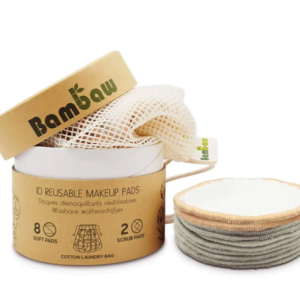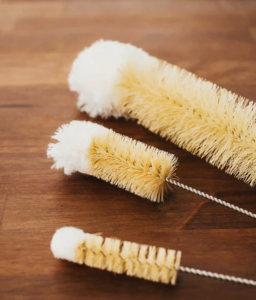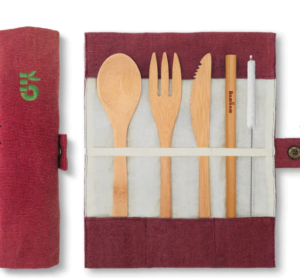Introduction to Bambaw Dish Brush
In a world where conscious consumption and sustainable living are becoming increasingly important, products that combine functionality with eco-friendliness take centre stage. One such standout is the Bambaw dish brush, meticulously crafted from birch wood. With the keyword “Bambaw dish brush” as the focus, let’s explore how this innovative kitchen tool embodies the ethos of sustainability and practicality.
The Bambaw dish brush represents a remarkable fusion of natural materials and modern convenience. Made from the sturdy and versatile birch wood, this dish brush carries the name of Bambaw, a brand synonymous with eco-consciousness. This brand has elevated the ordinary dish brush to an emblem of responsible consumer choices, making strides towards reducing our carbon footprint and minimizing the environmental impact of our daily routines.
The choice of birch wood as the primary material for the Bambaw dish brush underscores the brand’s commitment to sustainability. Birch trees are known for their rapid growth and abundance, making them an ideal renewable resource. By opting for birch wood, Bambaw not only showcases the material’s natural beauty but also advocates for a more environmentally aware lifestyle. This conscientious decision resonates with individuals who seek to align their household tools with their values of preserving the planet.
Functionality takes center stage as well. The Bambaw dish brush‘s ergonomic design, coupled with the lightweight yet durable birch wood handle, offers a comfortable grip that facilitates efficient and thorough cleaning. The carefully crafted bristles, often composed of plant-based fibers, further enhance its performance, ensuring effective scrubbing without harming delicate surfaces.
In a world brimming with disposable plastic alternatives, the Bambaw dish brush stands out as a symbol of change. By integrating sustainability into an everyday item, it encourages consumers to make mindful choices that resonate far beyond the confines of their kitchens. With each use, the Bambaw dish brush reminds us of the power of small decisions and how they collectively contribute to a more sustainable future.
In essence, the Bambaw dish brush crafted from birch wood is not just a utensil; it’s a testament to the transformative potential of conscious consumerism. As we delve deeper into an era defined by environmental responsibility, this remarkable kitchen companion paves the way for a greener, cleaner, and more sustainable tomorrow.
The Bambaw dish brush boasts a thoughtful design, measuring 24cm in total. Its 15cm handle, crafted for comfortable grip, seamlessly connects to an 8cm-thick scrub composed of gentle yet effective coconut bristles. This compact powerhouse embodies sustainable cleaning with ergonomic precision.
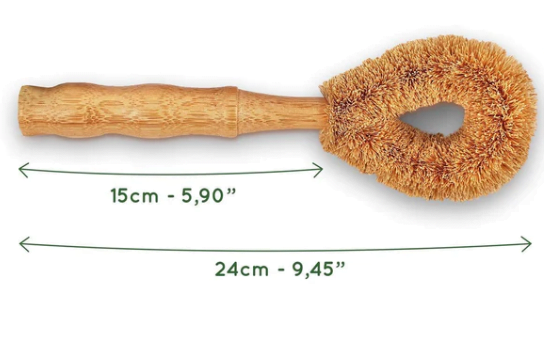
Bambaw dish brush distinguishes itself as an eco-friendly option compared to regular plastic brushes through various factors that collectively contribute to a reduced environmental impact. Here’s how:
1 Material Choice: Bambaw’s dish brush is crafted primarily from natural and renewable materials like birch wood for the handle, and often coconut bristles. In contrast, conventional dish brushes often use plastic, a material derived from fossil fuels that contributes significantly to pollution and takes centuries to decompose.
2 Renewable Resource: Birch wood, the main component of Bambaw’s dish brush, comes from trees that are known for their rapid growth and regenerative nature. This ensures a more sustainable supply chain compared to plastic, which requires extensive resource extraction and energy-intensive manufacturing processes.
3 Reduced Plastic Waste: Traditional plastic dish brushes contribute to the growing plastic waste problem, as they are frequently disposed of after they wear out. Bambaw’s dish brush, on the other hand, aims to minimize plastic waste by incorporating biodegradable materials that break down naturally over time.
4 Biodegradability: The plant-based bristles used in Bambaw’s dish brush are designed to biodegrade, further reducing the long-term environmental impact. In contrast, traditional plastic bristles can persist in the environment for centuries, causing harm to wildlife and ecosystems.
5 Lower Carbon Footprint: The production of plastic materials and products typically involves high levels of energy consumption and greenhouse gas emissions. By opting for materials like birch wood and plant-based bristles, Bambaw’s dish brush helps lower the carbon footprint associated with its manufacturing and usage.
6 Mindful Design: Bambaw’s focus on durability means that their dish brushes are intended to last longer, reducing the frequency of replacement and subsequently lessening the demand for new products.
7 Advocacy and Education: Bambaw’s emphasis on sustainability extends beyond its products. The brand often promotes awareness about plastic pollution, consumer choices, and sustainable alternatives, encouraging individuals to make more environmentally responsible decisions.
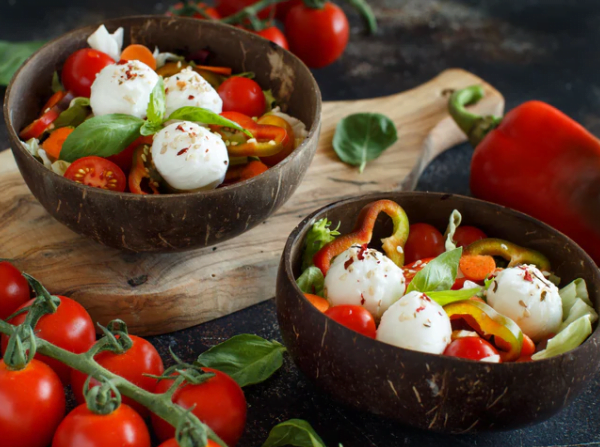
Read about the handmade coconut bowl to help your kitchen transform to be more natural and close to earth friendly.
How is sustainability achieved from the use of birch wood trees?
The evolution of sustainability from trees to tools in the case of Bambaw’s dish brush demonstrates a profound commitment to environmental responsibility and showcases the brand’s dedication to minimizing the ecological footprint of their products. This journey encompasses several interconnected stages, each emphasizing the brand’s values and determination to create a positive impact:
1 Material Sourcing and Selection: Bambaw’s journey begins with the selection of birch wood, a fast-growing and renewable resource, as the primary material for their dish brush handles. This choice reflects a conscious decision to utilize a sustainable material that can be sourced without causing harm to forests or depleting valuable resources.
2 Resource Efficiency: The use of birch wood aligns with Bambaw’s focus on resource efficiency. Birch trees require relatively less time to grow, making them an efficient source of raw material compared to slower-growing trees used for traditional wood products.
3 Craftsmanship and Durability: The transition from raw birch wood to finely crafted dish brush handles underscores Bambaw’s dedication to quality and longevity. By ensuring durability and functionality, Bambaw promotes a “buy it once” philosophy, encouraging consumers to invest in long-lasting products rather than frequently replacing disposable alternatives.
4 Plastic-Free Approach: The integration of natural bristles or other biodegradable materials further illustrates the progression of sustainability. Bambaw’s choice to avoid conventional plastic bristles directly addresses the problem of microplastic pollution, showcasing the brand’s commitment to responsible material usage.
5 End-of-Life Consideration: Bambaw’s dish brush approach extends beyond the product’s life cycle. The use of biodegradable materials, such as natural bristles, ensures that the dish brush can break down harmlessly when it reaches the end of its usefulness, completing the cycle of sustainability without contributing to long-term waste.
6 Consumer Empowerment: By offering the Bambaw dish brush, the brand empowers consumers to participate in sustainable practices. Through the use of a thoughtfully designed, eco-friendly tool, consumers contribute to reducing plastic waste and making environmentally conscious choices in their daily routines.
How can my vessels be scratch free?
Bambaw’s dish brush is made by use of Coconut bristle. The natural fibres in coconut plays a vital role in the make of this brush. Frequent use coconut bristle in dish brushes and scrubbers for their unique attributes that facilitate effective cleaning without harming delicate surfaces. Their scratch-free quality results from their softness, enabling them to adapt to surface contours while cleaning. Although adept at removing grime, the gentle abrasiveness of coconut bristles prevents surface damage. The even distribution of pressure, owing to their dense arrangement, further safeguards against scratches.
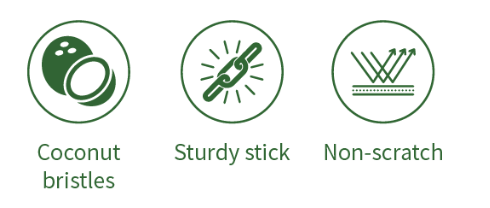
Comprising pliable fibres within a natural structure, they minimize the risk of deep scratches that synthetic materials may cause. Hygroscopic tendencies make them more supple when wet, decreasing the potential for surface abrasions. Users also benefit from controlled pressure application, reducing the risk of unintended scratching. Particularly suitable for non-stick surfaces, Bambaw dish brush consisting of coconut bristles adeptly eliminate residue without compromising surface integrity.
What is the brush made of?
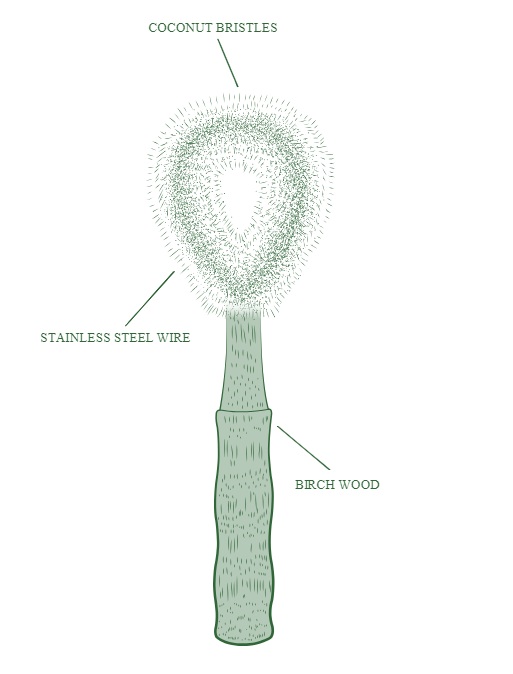
Coconut Fibre: Derived from the outer husk or cocoon of the coconut shell, the natural fibre boasts exceptional strength, constituting 45% wood content for solid resilience. Moreover, the slender nature of the fibre guarantees a washing experience free from scratches.
304 stainless steel: The stainless steel offers impeccable corrosion resistance. Remarkably, it ranks among the most recycled materials globally, surpassing even paper and glass. A significant 60% of fresh stainless steel production originates from recycled sources.
Birch Wood: For its quality, birch wood serves as an ideal choice for crafting the biodegradable handle of the dish brush.
The utilization of birch wood in the Bambaw dish brush as the foundation for crafting biodegradable dish brush handles stands as a testament to the synergy between nature’s offerings and modern innovation. The inherent qualities of birch wood, with its rapid growth and renewable attributes, align seamlessly with the global shift toward sustainable practices. This eco-conscious choice not only showcases a commitment to reducing plastic waste but also highlights the potential for harmonious coexistence between functional tools and environmental responsibility.
